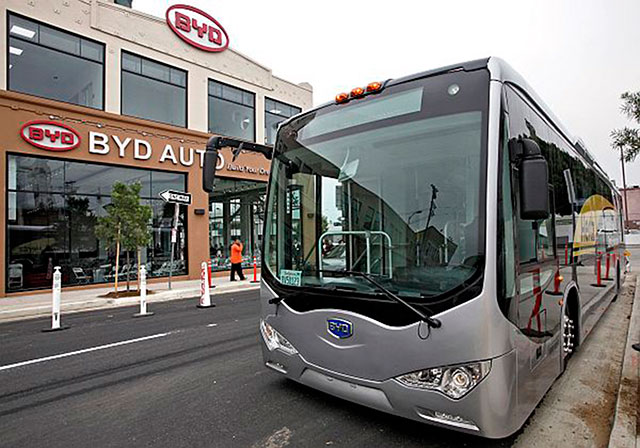The global electric buses market is predicted to expand at a staggering CAGR of 28.0 percent over 2014-2020, and reach 33,854 units in terms of volume, by 2020 end, according to the latest report from Persistence Market Research.
Several governments are extending efforts toward promoting environmentally friendly commute. There have also been laws regarding the reduction of pollution resulting from conventional vehicles. This is expected to provide a major thrust to the global market for electric buses.
Attributed to the government’s clean transportation drive initiation, China is currently spearheading the Asia Pacific market for electric buses. By the end of 2020, China is projected to account for nearly half of the global market.
The European market is expected to represent three key markets for electric buses, including Germany, France, and the U.K. BRICS nations – Brazil, Russia, India, China, and South Africa, maintain the largest public transport system, and thus will present the most lucrative opportunities for electric car penetration. As far as other countries are concerned, Brazil and Uruguay are set to emerge as early adopters of electric buses
China is especially raising substantial demand for connected buses, and is expected to continue boosting the market growth over the forecast period, the research said.
As crude oil reserves are depleting and their prices are highly fluctuating, consumers are increasingly seeking a better alternative in form of connected buses. This is expected to accelerate penetration of connected buses globally.
A large number of governments and venture capitalists are increasingly supporting companies and transit agencies with financial backing, which is foreseen to be a major factor positively influencing the market growth.
Compared to their traditional counterparts, an average price of a connected bus is approximately twice. Expensive purchasing costs may hamper the widespread adoption of connected buses, especially in developing markets.
The high cost of electric buses is a key barrier for this industry. Moreover, insufficient awareness about the electric bus technology and availability of electric buses may also remain a long term challenge to market growth. Despite establishing a decent adoption rate in developed markets, electric buses still lack standard regulatory framework. This is another key restrain, expected to deter the market growth during the forecast period.
Based on drive system, hybrid electric buses hold a majority of market revenues owing to relatively lower prices but pure electric buses segment has been witnessing significant growth in developed markets. Hybrid electric buses are anticipated to continue gaining the maximum traction globally. Pure electric buses will however register a higher growth rate over the forecast period, attributed to rising popularity of emission-free transportation.
Some of the most prominent players governing the global electronic buses market include BYD Company, Proterra, AB Volvo, Daimler AG, Solaris Bus and Coach S.A., ZF Friedrichshafen AG, Zhongtong Bus & Holding, Ashok Leyland, EBUSCO, Alexander Dennis Limited (ADL), and Shenzhen Wuzhoulong Motors.
The market is currently at a nascent stage. Leading companies are thus increasingly focusing on introduction of new, innovative, cost-effective technologies.
BYD Company and AB Volvo will continue to gain major profits throughout the forecast period. Leading companies are consistently concentrating on market expansion, which will favor the overall growth of the global market. BYD recently announced its new production base in California.
editor@greentechlead.com

